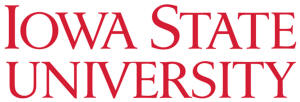IOWA STATE UNIVERSITY

The Global Program in the College of Agriculture and Life Sciences (CALS) of Iowa State University (ISU) provides leadership and service in globalizing teaching, research and extension programs In Africa, CALS has partnerships in Ethiopia (ILRI), Ghana (Institute of Statistical, Social and Economic Research), Kenya (ILRI, Jomo Kenyatta University of Agriculture and Technology) and Uganda (Volunteer Efforts for Development Concerns; Makerere University). Most partnerships include some or all of the following: long- and short-term faculty, students and staff exchanges, faculty improvement leaves, visiting professorships and research collaboration in natural resource management and livestock production systems. The Global Agriculture Programs (GAP) of the CALS at ISU has the leading study abroad program among colleges of agriculture in the country, currently sending over 250 CALS students abroad each year. Iowa State offers an interdisciplinary, interdepartmental major undergraduate program that allows students to tailor their college career to become an expert in a technical field and a specific region of the world, via the “Global Resource Systems Major”. CALS is very engaged in the Norman E. Borlaug International Agricultural Science and Technology Fellowship Program and over the past five years has provided training for more than 50 Borlaug Fellows from 11 countries. The ISU Center for Sustainable Rural Livelihoods (CSRL) mission is to engage in the discovery and application of science-based and indigenous knowledge to promote resilient, sustainable rural livelihoods in developing countries. CSRL’s partners are indigenous nongovernmental organizations, universities and international research institutes. One aspect of CSRL work in Uganda is to provide food security and financial stability by raising livestock. CSRL, together with Makerere University and VEDCO (Volunteer Efforts for Development Concerns), helped 100 families and two schools with livestock production opportunities. Many women were quite successful and able to sell chickens, pigs or goats and get money to pay for school uniforms and school fees for their children. Eggs are used to supplement their family’s diet and provide a good source of protein. The ISU Extension program led a very successful rural development program in Uganda “Bridging the Gap: Increasing Competitiveness of Ugandan Women Farmers in the Marketplace. This farmer-to-farmer program connected Iowa women farmers with groups of women farmers in the Kamuli District of Uganda, to interview and provide input to Ugandan women farmers to help enhance their farm’s profitability.

